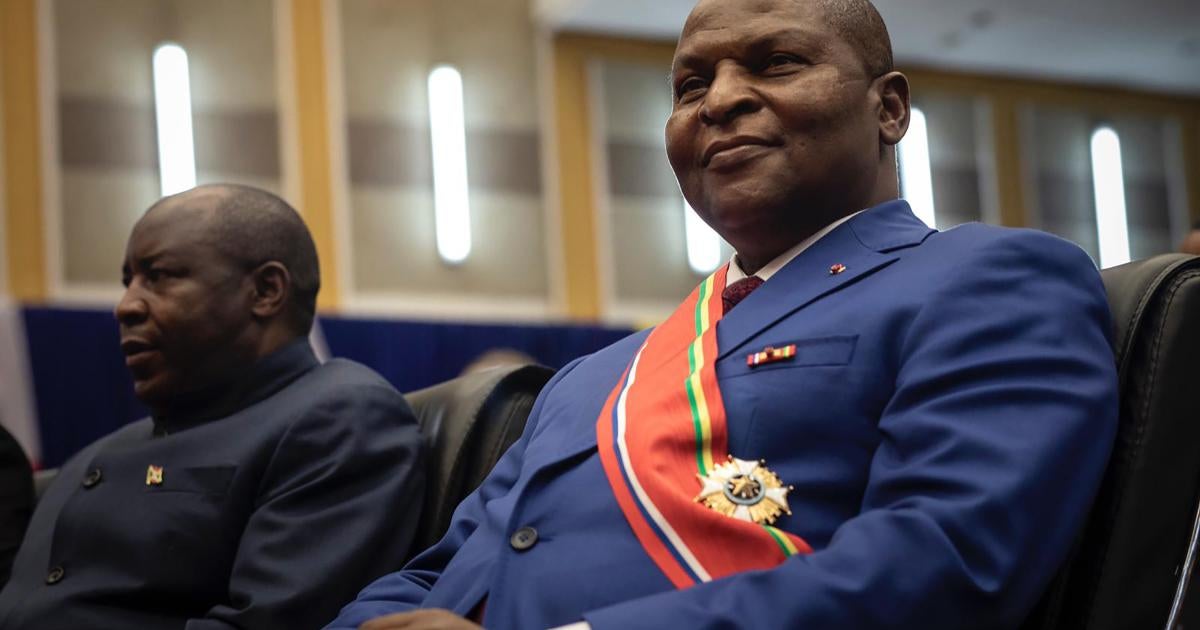Decade After Central African Takeover, Justice Still Needed
On March 24, 2013, an alliance of rebel groups known as the Seleka took control of Bangui, the capital of the Central African Republic.

By then they had also seized control of most of the country’s provinces and had overthrown President François Bozizé.
The Seleka (“alliance” in Sango, the main national language) said they aimed to liberate the country and bring peace, security and development to the people.
They did not. Within days, Seleka fighters unleashed waves of violence against those they perceived to have been Bozizé’s supporters, killing civilians in Bangui and across the country.
The group destroyed numerous neighborhoods and rural villages, looted country-wide, and raped women and girls.
The Central African Republic was unstable before the Seleka took over, owing in part to Bozizé’s legacy of corruption, nepotism and neglect. But the Seleka flipped an already struggling country upside down. Christian and animist militias known as anti-balaka began to organize counter attacks against the Seleka.
The group frequently targeted Muslim civilians, associating them with the Seleka. As the humanitarian situation rapidly deteriorated, hundreds of thousands of people fled the country as refugees, while others were displaced internally. Many of those who fled were Muslims, seeking shelter in neighboring countries or in dozens of enclaves scattered around the country’s western region.
The Seleka fractured and new armed groups emerged.
The destruction caused by the Seleka led to an inclusive negotiation for a way forward. National consultations in 2015, known as the Bangui Forum, brought together more than 800 representatives of community and other nongovernmental organizations, political parties, and armed groups from across the country. A theme emerged from the talks: justice over amnesty.
The forum was clear that no amnesty would be tolerated for those responsible for and acting as accomplices in international crimes. It recognized that the lack of justice in the Central African Republic since 2003 was one of the main causes of successive crises. A decade on, though, the Central African Republic is still unstable as it faces a renewed security and humanitarian crisis. In 2020 the Coalition des Patriotes pour le Change (CPC), a coalition of former Seleka and anti-balaka led by Bozizé, attacked Bangui. Government forces, along with Russian fighters and Rwandan troops, repelled the attack but could not stabilize the country.
The CPC retreated to its rear bases and into neighboring countries, continuing its attacks. A UN peacekeeping mission, established in late 2014, struggles to maintain any semblance of peace.
The violence continues unabated.
The reliance on Russia-linked forces from the Wagner Group, responsible for abuses against civilians including murder, unlawful detention, and torture bears similarities to those dark days of March 2013. But progress has been made in the judicial sphere that many thought unimaginable. In 2014, following a referral by the Central African government, the prosecutor of the International Criminal Court (ICC) opened an investigation into crimes allegedly committed since 2012, its second investigation (the first focusing on grave crimes committed in 2002 and 2003). Since 2018, the court has brought to the dock three anti-balaka leaders and one from the Seleka. In an important move, it published an arrest warrant in August 2022 for Nouradinne Adam, the Seleka’s alleged number two.
The court charged him with war crimes and crimes against humanity, including torture. Cooperation to secure his arrest is essential.
The ICC recently announced the completion of its investigation. A unique approach to addressing other serious cases has been the establishment of the Special Criminal Court, a new court in Bangui mandated to try war crimes and crimes against humanity alongside the ICC that has international staff and support.
The court has concluded one major trial and, while it has its challenges, it continues to be an effective tool to hold groups responsible for serious crimes accountable, especially given that the ICC won’t be pursuing any new cases. Ten years on, the Central African Republic is veering toward authoritarianism. President Faustin-Archange Touadera and his party are pushing for a constitutional revision that will enable him to run for a third term. Government officials and sympathizers have threatened and harassed political opponents, journalists and civil society actors who challenge the revision.
The head of the constitutional court, who ruled this revision illegal, was forced out of office. To make good on the promises of the Bangui Forum, democratic space – where respect for freedoms of expression and association is upheld – should be reopened. And the government needs to back its commitment to justice with political will to secure arrests of alleged criminals who currently hold office.
The crisis in Central African Republic remains acute. Many Seleka leaders flaunt justice: some are government ministers; others are still conducting military attacks. Impunity has led to the creation of other armed groups and fueled more violence against civilians.
The current government’s crackdown and abuses by Russian mercenaries compound the crisis. Ending the cycles of violence will be possible, in part, through addressing this impunity.
The next 10 years will be challenging, but the next generation of leaders should heed the calls from the Bangui Forum.
Read the full article at the original website
References:
- https://www.hrw.org/news/2013/05/10/central-african-republic-rampant-abuses-after-coup
- https://www.hrw.org/africa/central-african-republic
- https://www.hrw.org/report/2013/09/18/i-can-still-smell-dead/forgotten-human-rights-crisis-central-african-republic
- https://www.hrw.org/report/2007/09/14/state-anarchy/rebellion-and-abuses-against-civilians
- https://www.hrw.org/sites/default/files/reports/car1213_web.pdf
- https://www.hrw.org/report/2017/07/05/killing-without-consequence/war-crimes-crimes-against-humanity-and-special
- https://www.hrw.org/news/2018/08/24/central-african-republic-bar-amnesty-atrocity-crimes
- https://www.hrw.org/news/2020/12/23/central-african-republic-rebel-violence-threatens-elections
- https://www.hrw.org/news/2019/11/19/car-peacekeeping-mandate-renewed-attacks-continue
- https://www.hrw.org/news/2022/05/03/central-african-republic-abuses-russia-linked-forces
- https://www.hrw.org/news/2021/02/07/central-african-republic-first-anti-balaka-trial-icc
- https://www.hrw.org/news/2022/03/21/mokoms-reckoning-central-african-republic
- https://www.hrw.org/news/2021/01/25/central-african-republic-first-seleka-suspect-icc-custody
- https://www.hrw.org/news/2022/08/08/icc-issues-warrant-central-african-republic-rebel-leader
- https://www.hrw.org/news/2019/07/24/central-african-republic-new-court-should-step-effort
- https://www.hrw.org/news/2022/04/12/central-african-republic-war-crimes-courts-first-trial
- https://www.hrw.org/news/2023/01/31/epitome-impunity-central-african-republic
- https://www.hrw.org/news/2023/03/13/well-deserved-recognition-central-african-judge
- https://www.hrw.org/news/2021/11/28/central-african-republic-detain-war-crimes-suspect-now
